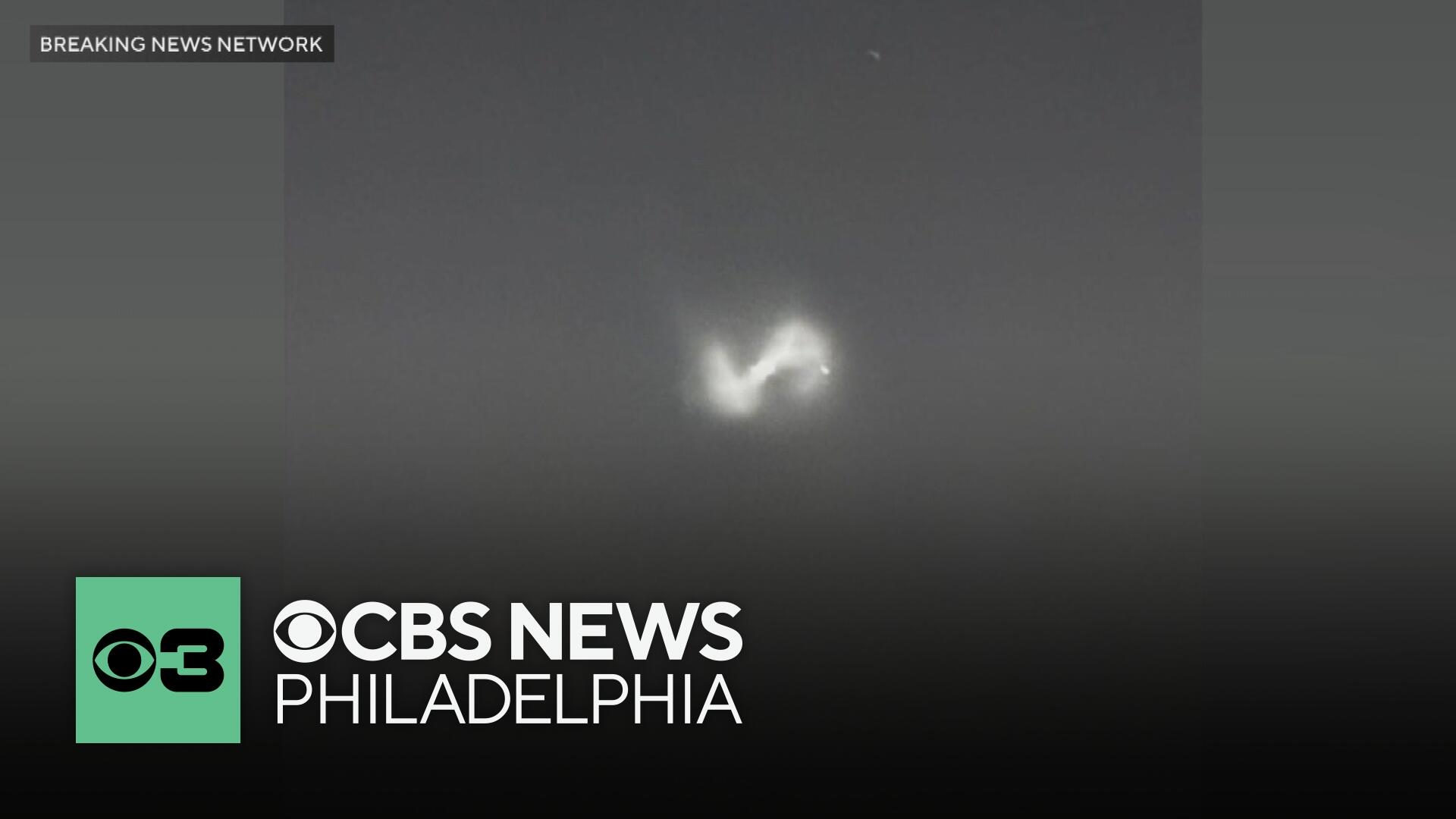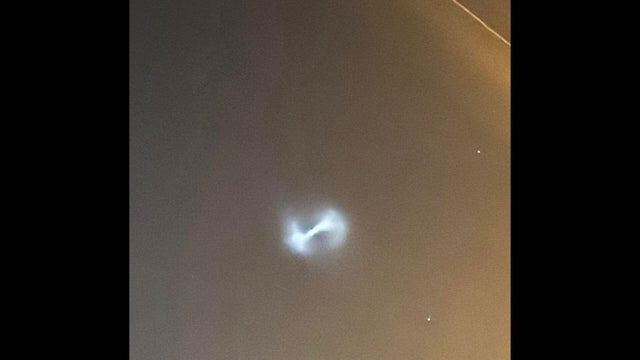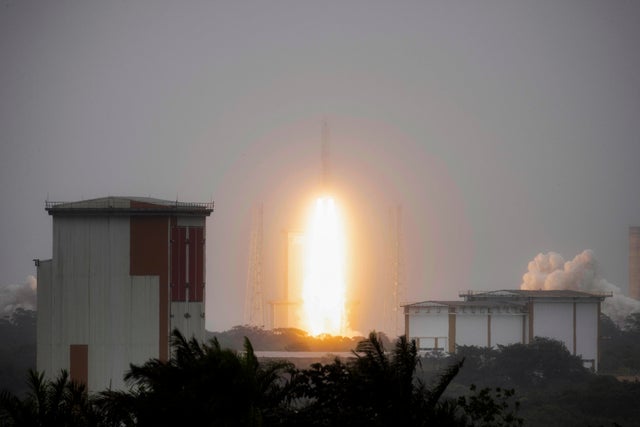Lights in the sky over eastern U.S. were likely European Ariane 6 rocket, astronomer says
Along the East Coast of the U.S. on Tuesday night, onlookers snapped pictures and took video of strange lights in the sky — what could it be?
Photos shared across social media showed a sort of wobbling white shape that looked like a boomerang or maybe an astral Wu-Tang Clan logo.
Of the sci-fi-minded netizens, some speculated it was aliens. A few Swifties looking for signs connected to the next album tried to squint and make the lights look like a 12 or 13 before concluding it was probably aliens.
Others wondered if the mysterious drones of 2024 were making a comeback, or if they were seeing the Vulcan rocket that took off from Cape Canaveral, Florida, on a U.S. Space Force mission.
The sight was likely none of those, says an astronomer, who noted that there were actually two rocket launches around the same time Tuesday night.
Derrick Pitts, chief astronomer at the Franklin Institute in Philadelphia, shed a little of his expertise on the online chatter concerning these lights in the sky and rocket launches.
While we Americans might have been focused on the American rocket that launched, the flight path the Vulcan rocket took actually sped east from Florida, away from the U.S., Pitts told CBS News Philadelphia. Rockets will often launch to the east to get a boost from Earth's rotation.
CBS News reported that the Vulcan rocket took off at 8:56 p.m. Eastern Time.
About 20 minutes earlier, another rocket in South America, this one launched by the European Space Agency, launched and headed north.
ArianeSpace, a company that works with the ESA, said it launched an Ariane 6 rocket from Kourou, French Guiana, around 9:37 p.m. local time — 1 hour ahead of Eastern Time, so 8:37 p.m. ET.
Pitts pointed out that this rocket was carrying weather satellites into polar orbit and that its flight path would take it past the East Coast. Maybe not over land, but over the Atlantic Ocean, and close enough to see.
Some social media users pointed out that the set of lights they observed was headed north, ruling out Vulcan. But in the absence of knowledge about Ariane 6, the void was filled with conspiracies about drones and extraterrestrial invaders.
Nope, says Pitts, who notes that when we see something unexplainable, the mundane explanation usually is the right one.
And by the way, this rocket launch probably only generated such a buzz because it's not as common for Northeasterners like us to see. In Florida and on the West Coast, where SpaceX is incredibly active — quickly approaching their 100th rocket launch of the year — people are used to this sight in the skies, Pitts said.


